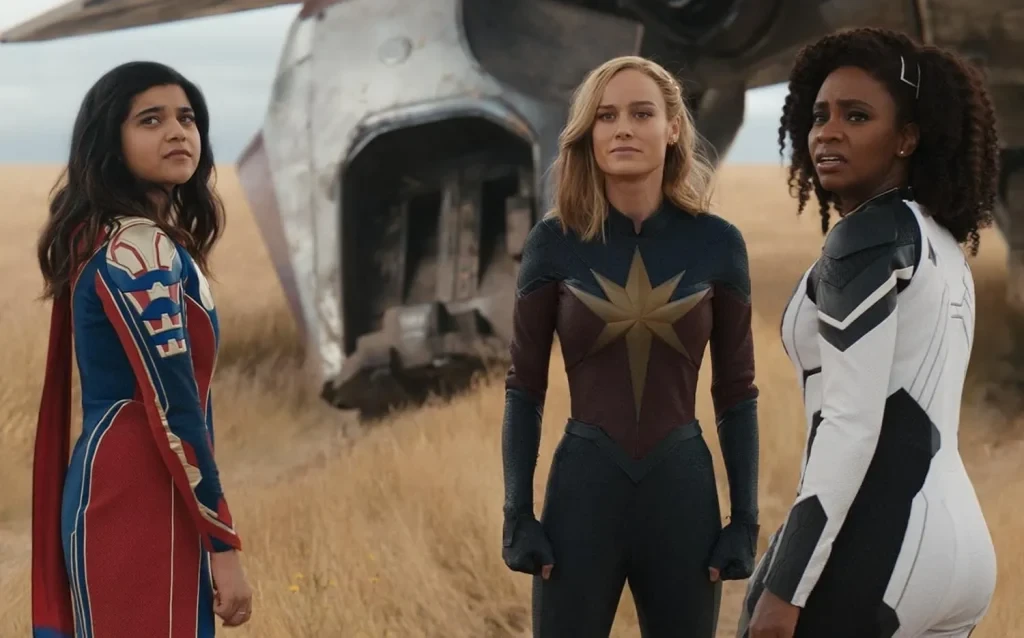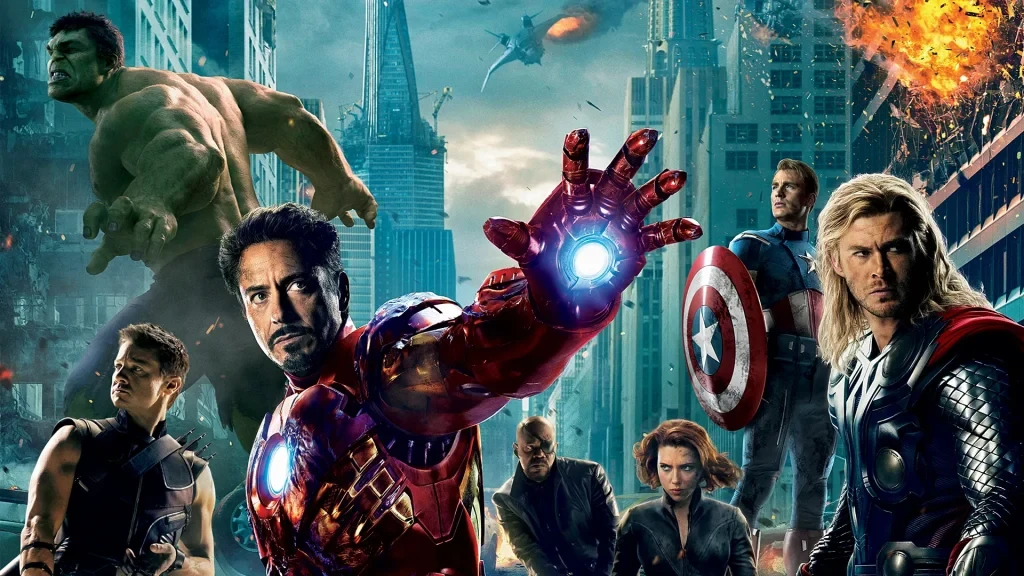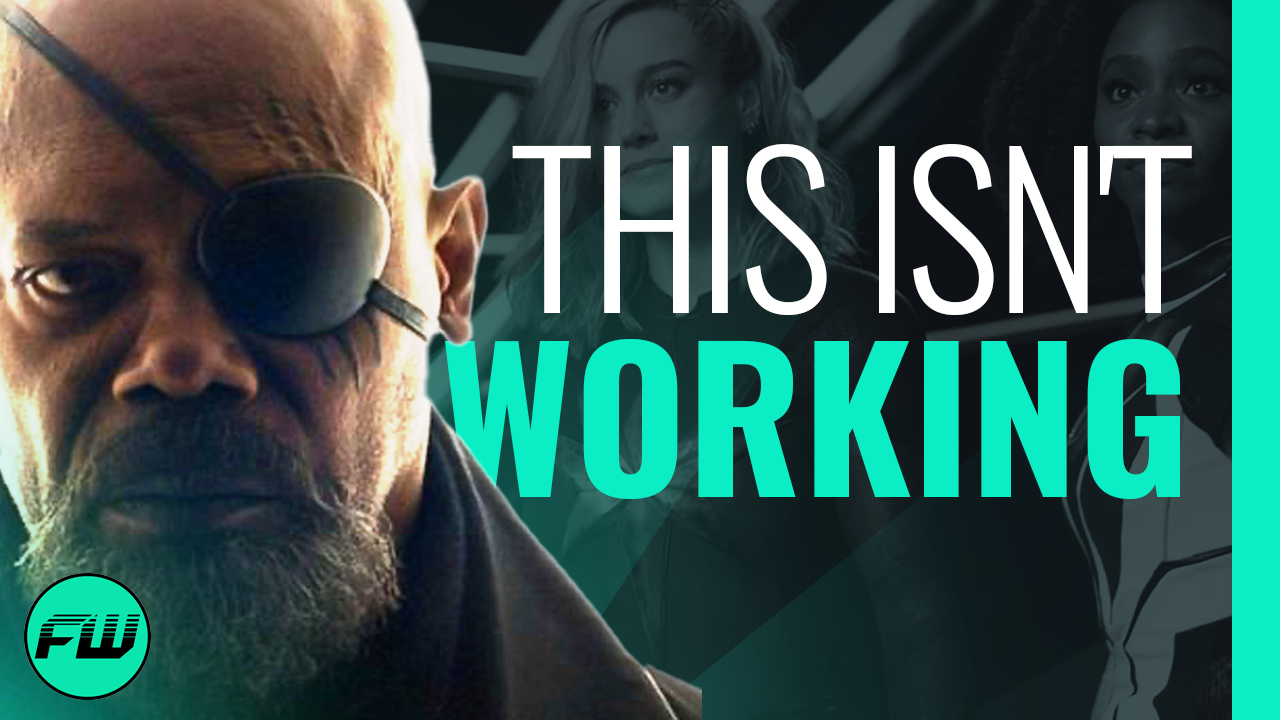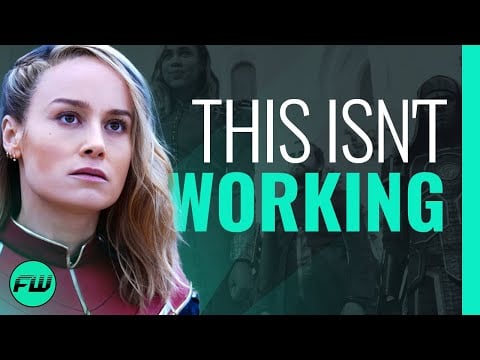In this FandomWire Video Essay, we explore why the MCU is failing and how to revive it.
Check out the video below:
Subscribe & hit the Notification Bell so you never miss a video!
What Happened To The MCU?

This… well, this used to be one of the most reliable franchises in Hollywood, and now it’s not.
Let us explain.
For over a decade, it felt like the Marvel Cinematic Universe was on top of the world. Marvel Studios head Kevin Feige and his rotating crew of filmmakers churned out one hit after another, with each new movie in the MCU guaranteed to be one of the biggest of the year.
So what went wrong?
After what might be the most significant event in cinema history — Avengers: Endgame — the Marvel Cinematic Universe was primed for a reset. Many of the old characters were out, passing the baton to some new faces. Although a few of the new guard had been established right before Endgame, others are still completely fresh to audiences.
Although it’s hard to pinpoint the beginning of the end — some would say Eternals, others She-Hulk: Attorney at Law, and still more Ant-Man and the Wasp: Quantumania — it is easy to tell where the death bell rang: the release of 2023’s The Marvels. The sequel to Captain Marvel made a measly $84 million at the US box office, compared to the $426 million its predecessor made. Not only that, but it was the lowest-grossing film in the franchise’s history and the first not to cross the $100 million mark. The MCU, once seen as bulletproof, was now officially vulnerable.
However, to understand what got us to this point, we have to understand what made the Marvel Cinematic Universe work. Let’s rewind to 2007 when the first Iron Man was released. Made on a budget of $140 million with a star who was still seen as “risky” at the time, Robert Downey Jr., Iron Man was nonetheless a smash hit, raking in $319 million at the US box office and $266 million internationally for a grand total of $585 million worldwide.
After that came The Incredible Hulk, Iron Man 2, Thor, and Captain America: The First Avenger. All of these were successful in their own right, but what helped was how they were all connected by easter eggs leading up to 2012’s The Avengers, which immediately became one of the biggest movies of all time, blowing all of the individual superhero movies out of the water.

Fans of all of these characters were unified to see a movie that featured them all teaming up — something that hadn’t been done before and that many other IPs have tried since. It was unprecedented… which is precisely the problem we’re beginning to see with the MCU. Nothing feels unprecedented anymore. It feels like the franchise has done all that it can do.
In an attempt to revitalize the franchise with a new direction, Feige and co. are being forced to trek even deeper into the lore of comic book canon. Some of the characters being introduced to the movies in recent and upcoming phases are either newer and untested — as is the case with Kamala Kahn, aka Ms. Marvel — or are simply a little more obscure, like Wonder Man.
Yet, this was hardly an issue for the MCU in the past. Any comic fan will tell you that Iron Man was a B-list character until the Marvel Cinematic Universe came along. And the Guardians of the Galaxy weren’t particularly well-renowned either. But what Marvel did in its early phases was take these characters that no one knew about and make something unique and creative out of them. Now, it feels like characters are being introduced into the franchise only to be forced to comply with the established formula.
It’s particularly frustrating to see the MCU take this direction, considering how much talent Marvel Studios has been able to enlist in the director’s chair. With rare exceptions, like Ryan Coogler’s Black Panther films, it feels like few directors are getting the opportunity for their personalities to shine through in their Marvel outings. Even visionary directors like Chloe Zhao and Nia DaCosta only had brief scenes in their films that felt like their directorial flourishes. This starkly contrasts the days of filmmakers like James Gunn or Shane Black being allowed to enter the franchise with their own voices.
That being said, perhaps the biggest complaint about the Marvel Cinematic Universe after Endgame is that the franchise is now lacking in direction. For the first twelve years of the MCU, it was clear that the series and its creators were eventually building to the epic conclusion of the “Infinity War” storyline. However, even though “Secret Wars” has been teased as the next big storyline, it’s harder to see those pieces falling into place in Phases Four and Five than it was to see the pieces of “Infinity War” coming together in Phases 1-3.
The other significant factor that we must consider is the mixed reception the latest entries in the franchise have gotten from critics and fans alike. Phases 4 and 5 gave us some of the most reviled projects in the Marvel Cinematic Universe to date. Thor: Love and Thunder, Eternals, and The Marvels were divisive at best, and Ant-Man and the Wasp: Quantumania is almost universally regarded as one of the worst films in the franchise. Although a few projects — like Shang-Chi and the Legend of the Ten Rings and Guardians of the Galaxy Vol. 3 — were more universally loved, the hits in this era of the MCU have been far fewer in number than the misses.
As such, the Marvel Cinematic Universe has begun to experience an issue of quantity over quantity. It’s understandable why Feige and Marvel Studios would think this approach would work. After the success of Endgame, they were on top of the world. They assumed people would go to theaters or tune in via streaming to anything they put out. Unfortunately, that assumption was misguided, as the MCU’s dip in quality has caused its reputation to suffer a massive blow.
Many fans have also pointed out the oversaturation of content the MCU has suffered. We’ve seen this effect in other major franchises before — just see the underperformance of the prequel Solo: A Star Wars Story, which many people attribute to the fact it was released too soon after The Last Jedi. Somehow, Disney fell victim to the same mistake with the Marvel Cinematic Universe. Fans were used to seeing one or two MCU movies a year, but we reached a point where we consistently got three or more.
This overstimulation by Marvel content was worsened by the onslaught of Disney+ shows. In 2021 alone, there were five Marvel Cinematic Universe shows on Disney+: WandaVision, The Falcon and the Winter Soldier, Loki, What If…?, and Hawkeye. This was on top of the MCU’s four theatrical releases that year. All in all, audiences were understandably overwhelmed by the amount of Marvel content they were expected to keep up with.
Worse yet, many of these shows on Disney+ are fundamental to the stories of the theatrical films. To understand Doctor Strange in the Multiverse of Madness, you had to have seen WandaVision. To understand The Marvels, you needed to have seen not just the movie Captain Marvel but also Ms. Marvel, WandaVision, and even Hawkeye. Casual viewers have become disillusioned that they have to pay monthly for a streaming service and watch several hours of a streaming show to enjoy the movies.
Some may wonder why the Disney+ method works for Star Wars but not the Marvel Cinematic Universe. For one, there is a flagship Star Wars series — The Mandalorian — while the MCU shows don’t have any that stand out above the rest of the crop. Additionally, it feels like most of the Star Wars shows (with the possible exception of The Book of Boba Fett) are allowed to have their own stories. With the Marvel Cinematic Universe shows, it feels like the back half of the season is spent building up to other things.
Of course, plenty of external factors may have affected the success of projects in the Marvel Cinematic Universe, including the SAG strikes that ended in November and the Jonathan Majors controversy. The strikes prevented the actors involved in The Marvels from participating in promoting the film until the last minute. And while Majors’ charges surfaced after the release of Ant-Man and the Wasp: Quantumania, they cast a significant shadow over the entire franchise’s future, as his Kang the Conqueror was meant to be a major role in the next phase.
Thankfully, Marvel seems to have taken the hint, beginning a pivot that could signify a massive course correction for the franchise’s future. Kevin Feige and the studio heads at Disney decided to delay the release schedule of many of the projects in the MCU pipeline. The only theatrical project fans are getting from the MCU in 2024 is Deadpool and Wolverine, and as far as streaming series go, Echo has already been released, and there are a few more slated for the year with unconfirmed release dates.
Will this be the solution to Marvel’s woes? Only time will tell. Although some of the delays directly resulted from the strikes, it was probably for the better. Delaying several of the films and shows has also allowed the creators behind the projects to spend more time focusing on their quality. This is the case with Daredevil: Born Again, which underwent massive rewrites and supposedly even an outright re-focus. Blade is another project whose delays have allowed it to go through another round of revisions. Although rewrites typically do not inspire confidence in Hollywood, it might be a good thing in the case of the Marvel Cinematic Universe, considering how rushed everything has been to this point.
What do you think? Is the Marvel Cinematic Universe on life support? Or do you believe the re-focus of the franchise will help guide it back on track? Let us know in the comments below, and be sure to like and subscribe. As always, thanks for watching! Until next time!
Follow us for more entertainment coverage on Facebook, Twitter, Instagram, and YouTube.



